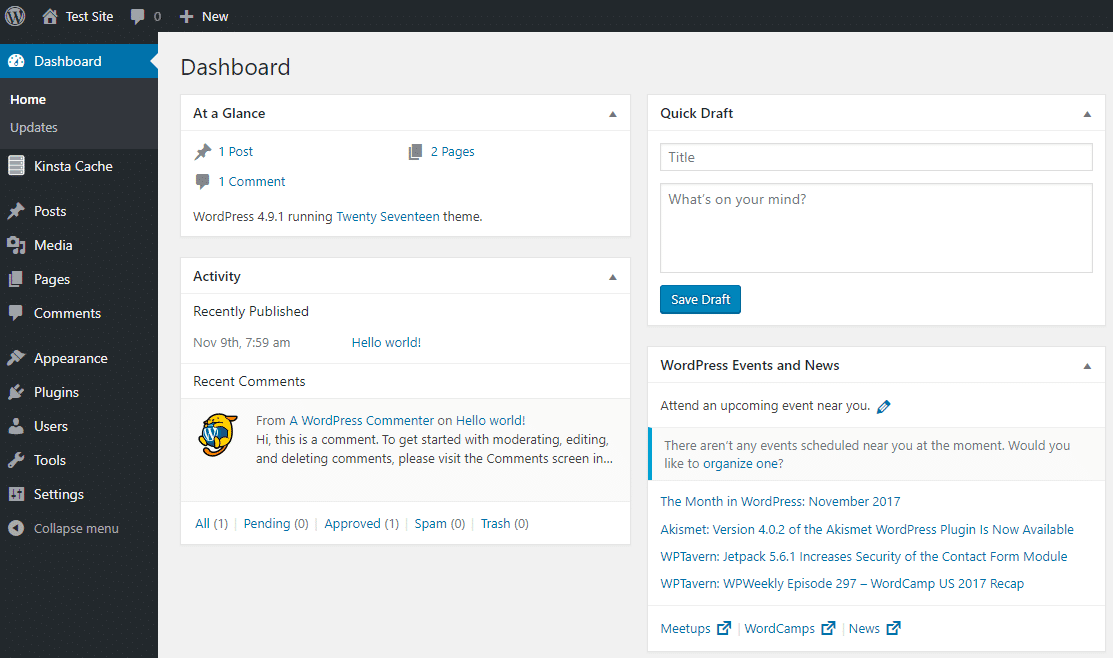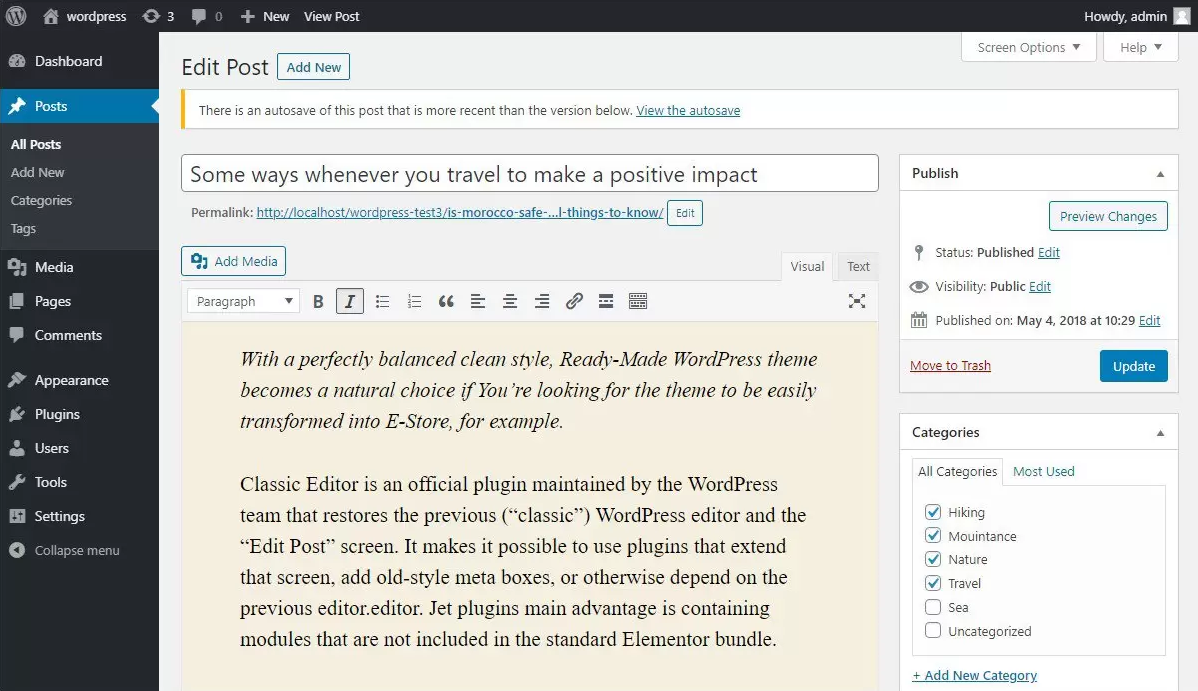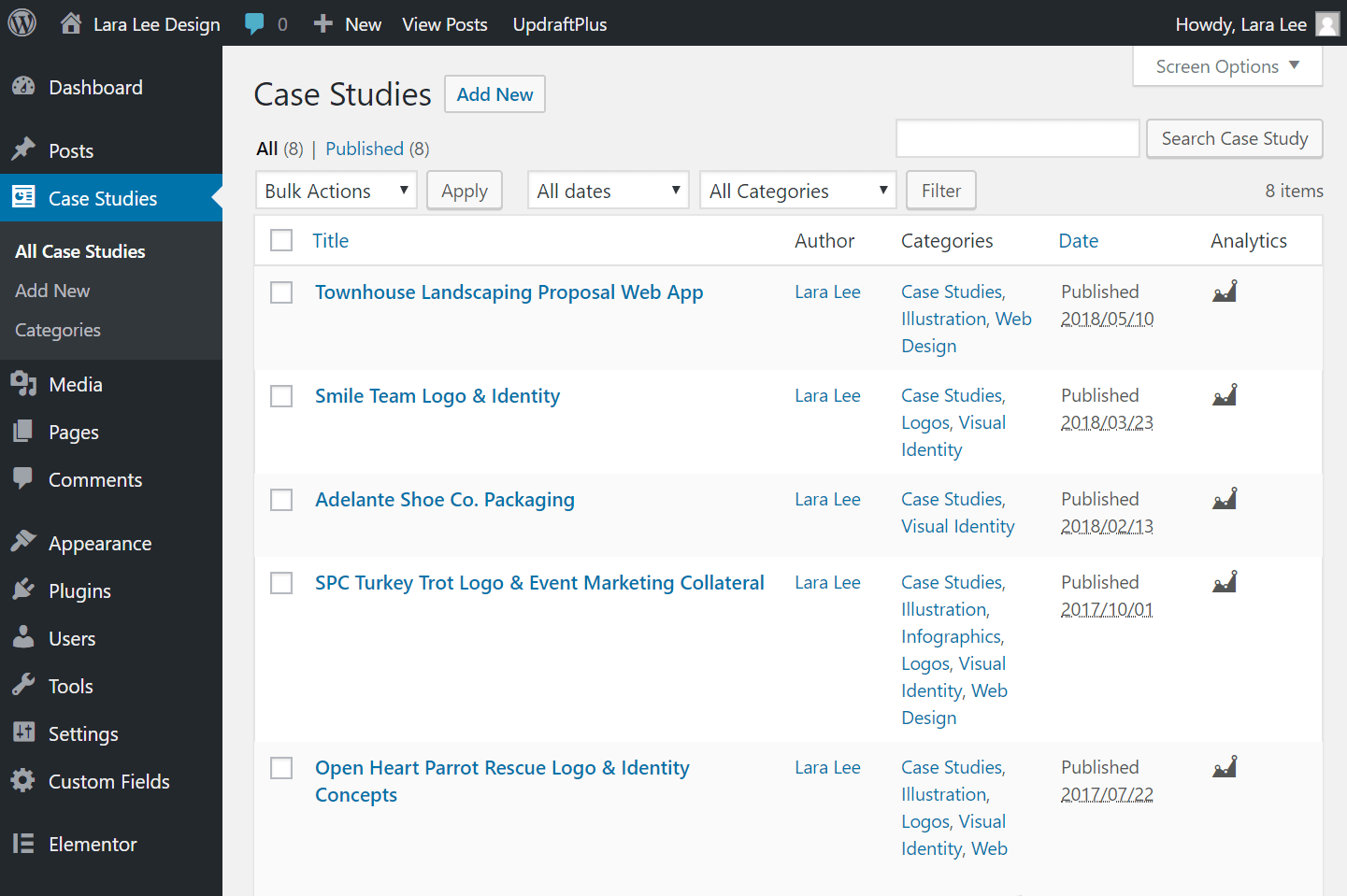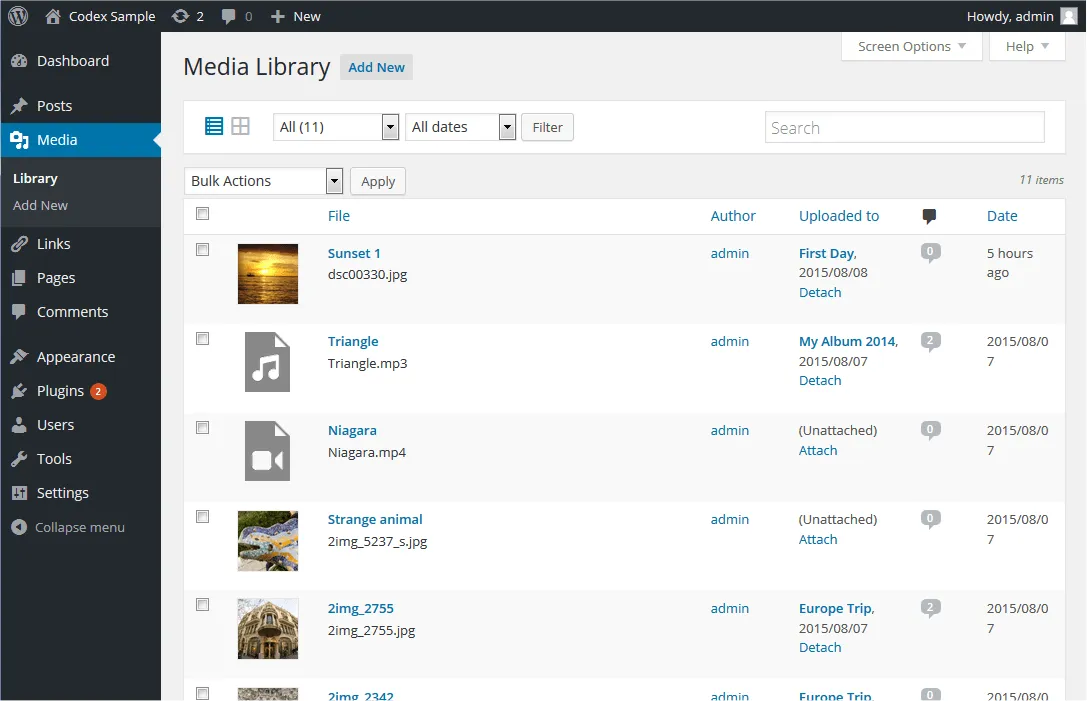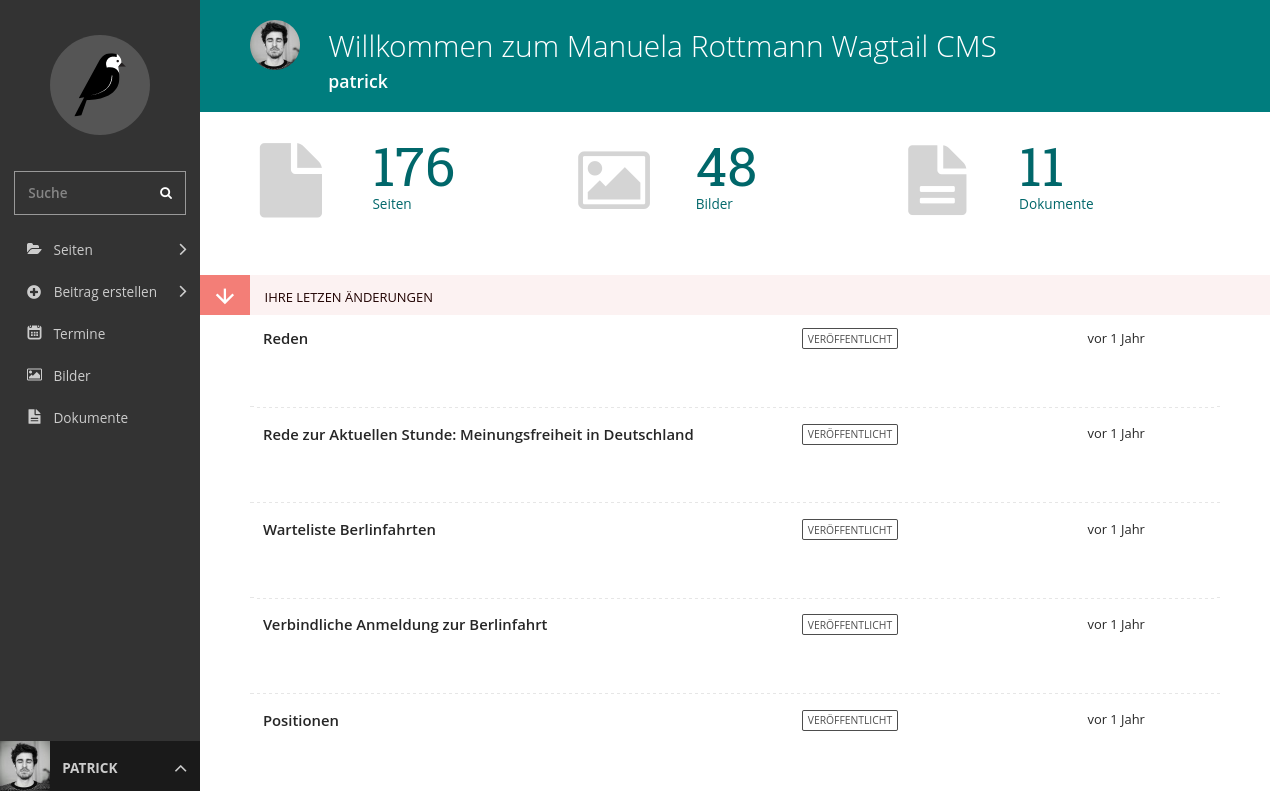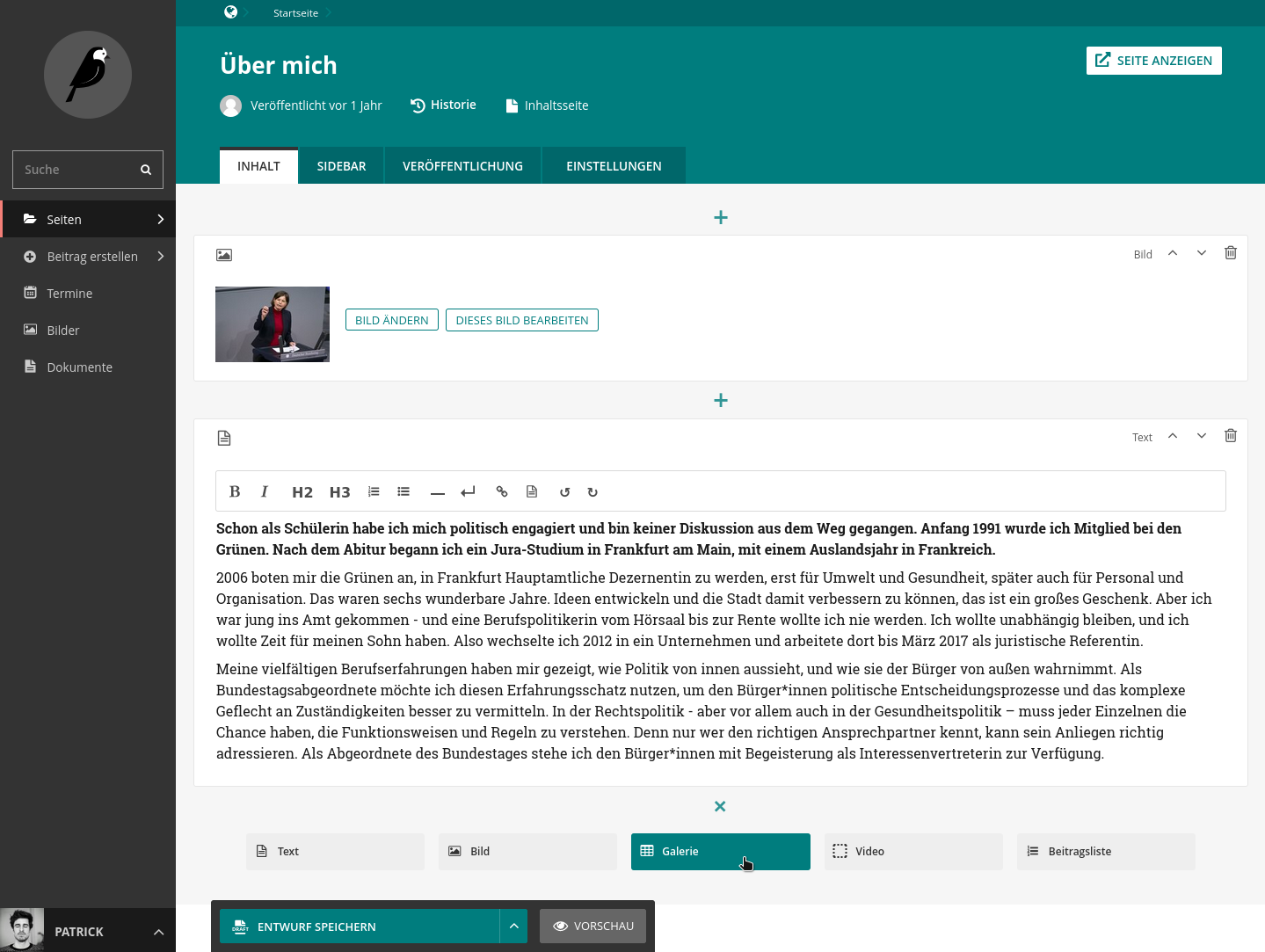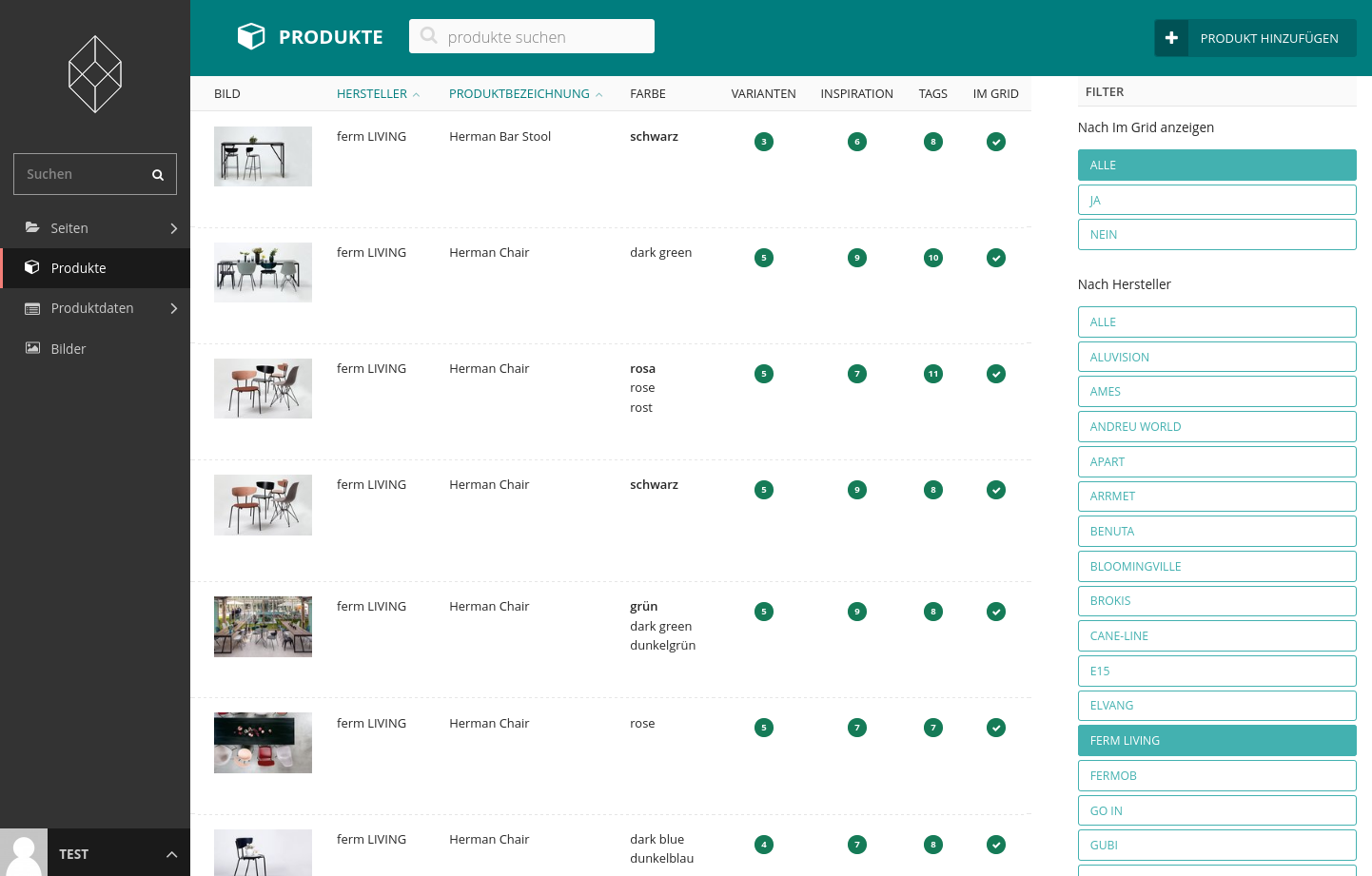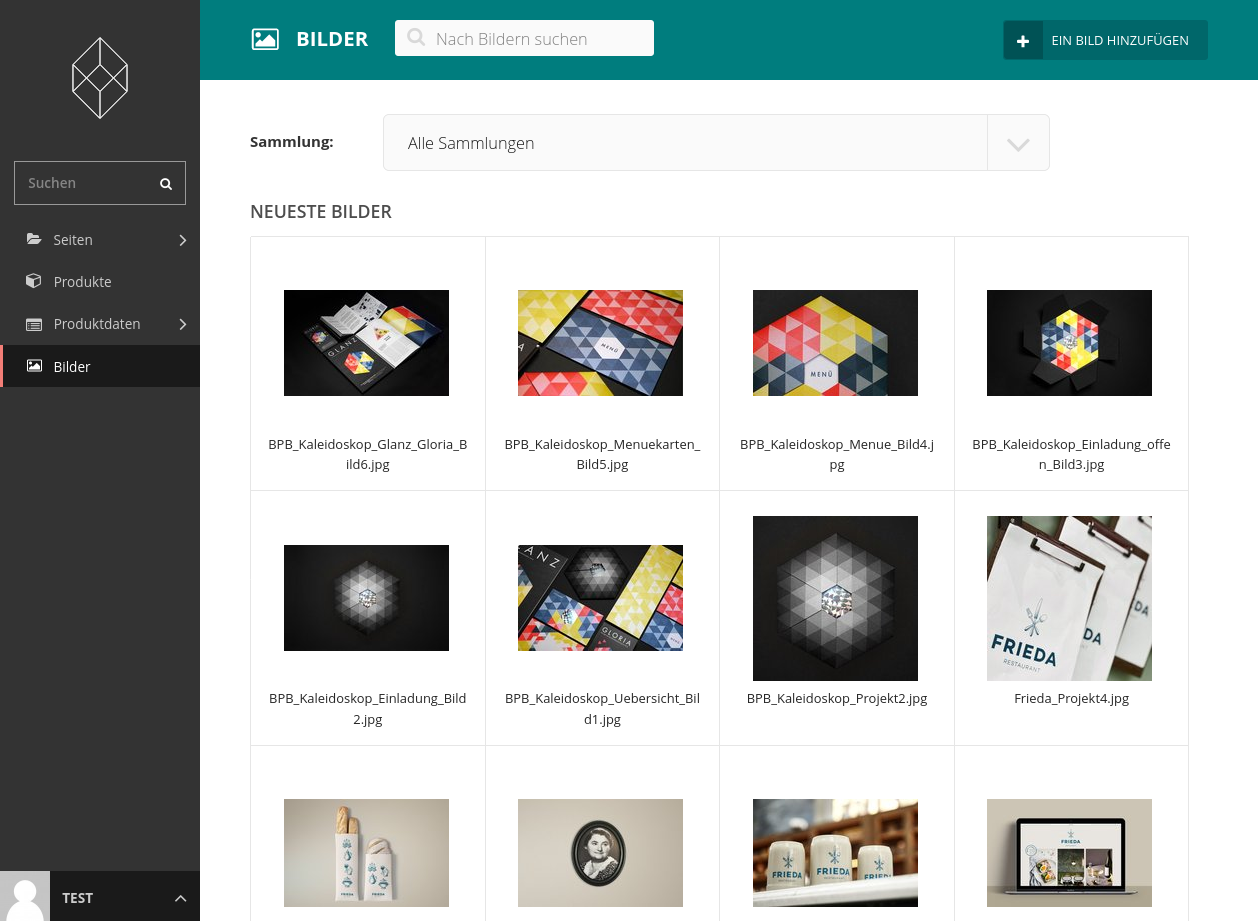Customizability and Usability
Wordpress is based on an architecture that is over 15 years old and was designed for simple websites and blogs. This blog structure is hardcoded into the system, so projects with other requirements have to be "squeezed" into this structure. This is possible through the use of plugins, however there is no standardized approach for this. This quickly leads to compromises, dependencies and hacks that have a negative impact on the usability, maintainability and stability of the system. Ultimately, this falls back on the editors: The user interface appears untidy and cluttered. Content often has to be maintained in different places. This leads to frustration, errors and technical debt, especially in large projects that require maintenance over a long period of time.
Wagtail, on the other hand, acts more as a CMS framework that can be customized from the ground up. Custom data structures, special functions, connections to interfaces or tools tailored to the project can be implemented in a standardized way and integrated cleanly into the user interface. Usability for editors is the primary concern here. Content is maintained in an intuitive way and can be located quickly. Both the user interface and programming interface are based on uniform standards, which has a positive effect on the clarity, both of the UI and code (keyword maintainability).
Wagtail manages the balancing act between customizability and a tidy user interface in an elegant way.
The following screenshots show the editorial interfaces of the two systems.
Security
Despite the limitations mentioned above, Wordpress is the most widely used CMS on the web. According to statistics, one third of all websites are operated with Wordpress. This is one of the reasons why there are countless security holes for Wordpress. Even if the Wordpress installation is up to date, it is often plugins that are responsible for vulnerabilities. Due to the inconsistent structure of Wordpress, it is difficult to counteract this. This can also affect the search engine ranking on Google and co.
Wordpress is like paradise for spammers, bots and hackers. No other system is affected by so many attacks.
Wagtail is more secure not only because of its smaller number of active installations. It is built upon the proven Django web framework and adheres to its strict security standards. Security is one of the core values of Django and therefore Wagtail. The most common vulnerabilities such as cross-site scripting or SQL injection are automatically prevented by Django/Wagtail. In a Wordpress system, developers are responsible for these safeguards manually.
Stability
Due to the mentioned security problems, a Wordpress system has to be updated regularly. This often leads to compatibility problems with installed plugins. These often no longer work after an update and must therefore be deactivated, so that parts of the site do not function properly.
The security standards in Django/Wagtail and the uniform implementation of extensions, allow a clear workflow for updates and thus excellent stability.

Performance
Due to the fixed structure and plugin architecture used in Wordpress, the code of a delivered site is often unnecessarily bloated. For example, the same front-end libraries are often downloaded multiple times in the browser by different plugins. Which has a negative impact on load time and thus usability and search engine ranking.
The lightweight structure of sites built with Wagtail has a positive effect on performance and also enables fine-tuning of these aspects. Optimizations such as caching or compression are provided by default by Django and can be implemented easily.
Developer Community
The aforementioned problems that Wordpress brings with it are also reflected in the number of good, trained developers. Over the years, Wordpress has increasingly gained the reputation of a particularly easy entry into the creation of websites. The driving force here is the possibility to easily create a website with the help of pre-made themes and plugins. That's why it can be challenging to find experienced Wordpress developers for non-trivial tasks. Furthermore, Wordpress is not exactly renowned for its development environment:
In a survey conducted by Stack-Overflow in 2019, Wordpress was voted the "most dreaded development environment" by developers
Wagtail is based on the most growing programming language Python, which is known for its clarity and productivity. Due to the unified structures and standards in Django and Wagtail even Python developers who haven't had any exposure to Wagtail can quickly get started with development.
Conclusion
The choice of content management system for web projects is critical and has a major impact on usability, maintainability, performance, security and generally on the satisfaction of all involved. The greater the range of functions and the complexity of the project, the greater the impact of these aspects. While it is certainly possible to design a decent CMS with Wordpress, it's just a lot less likely ... and less fun! Fortunately, there are better alternatives :)
For further impressions: On madewithwagtail.org you can find a large number of sites implemented with Wagtail.

